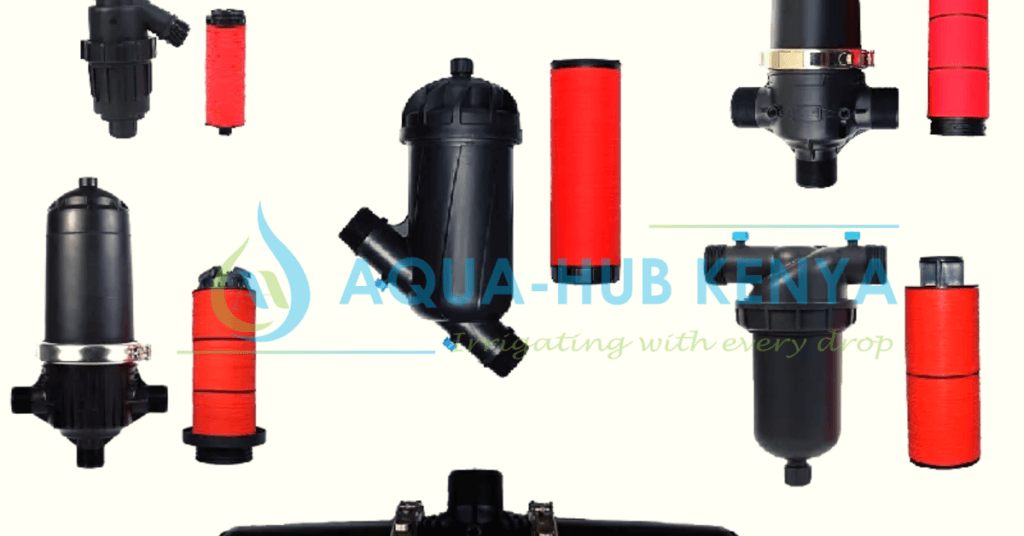Quality Irrigation Filters in Kenya
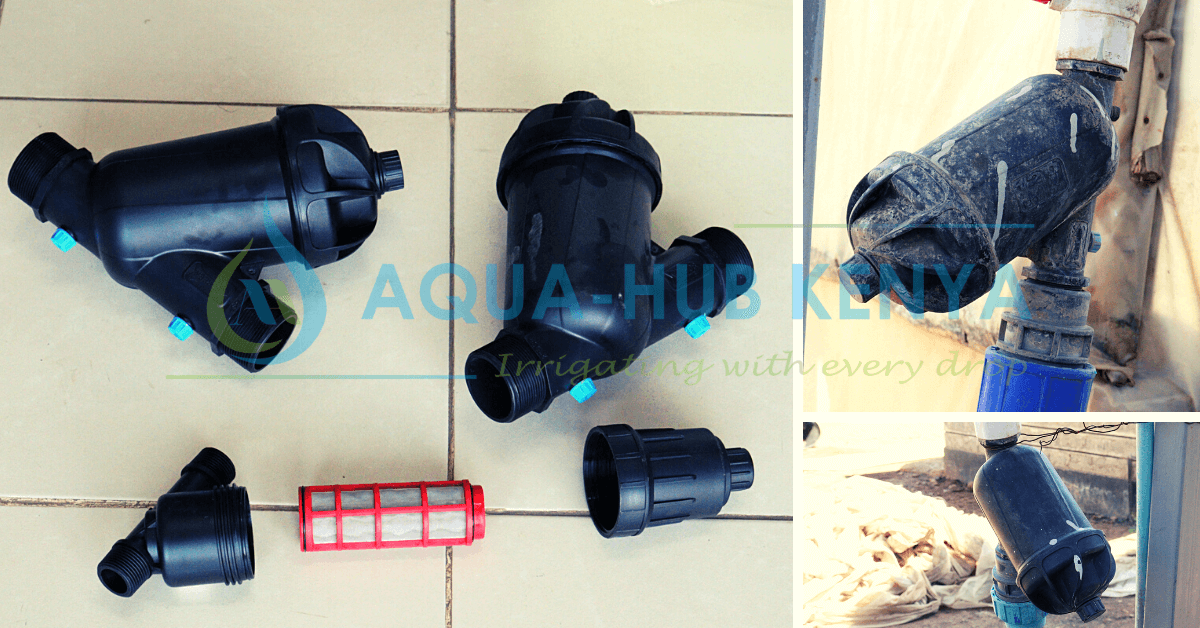
We have the best quality and affordable irrigation filters in Kenya. Our filters are strong and have a long lifespan. Due to the contaminants in the water, the water system is susceptible to clogging during irrigation. One needs to filter the water before putting it into the water system in order to avoid this happening. A filter can be used to do this. In order to avoid blockages, a filter separates pure water from sediments that can clog the pipes. It, therefore, only permits clean water to pass through.
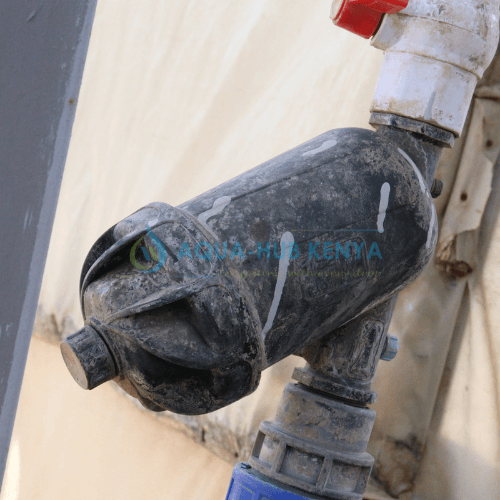
What are Irrigation Filters in Kenya?
Irrigation filters in Kenya are devices that are used to remove impurities. And debris from irrigation water before it is applied to crops. They are designed to protect irrigation equipment from damage and clogging. And to also improve the overall efficiency of the irrigation system. As a general rule, clear irrigation systems need clear, debris-free water. When this material is permitted to enter the primary water supply line, it blocks the drip emitters. This is the main justification for why irrigation water filters are necessary. For any drip irrigation system, micro irrigation system, or any irrigation system that needs pure water.
What are the types of Irrigation Filters in Kenya?
There are several types of irrigation filters used in Kenya, including:
- Screen filters. These filters use a fine mesh screen to remove debris such as sand, sediment, and algae from irrigation water. They are also commonly used in surface water irrigation systems.
- Disc filters: These filters use a series of discs with small openings to remove debris from irrigation water. They are also commonly used in drip and micro irrigation systems.
- Sand media filters: These filters use a bed of sand to remove debris from irrigation water. They are also commonly used in large-scale irrigation systems.
What is the use of water filters?
Irrigation water filters are used to remove impurities and contaminants from water that is used for irrigation, such as in agricultural or landscaping applications. These filters help to ensure that the water used for irrigation is clean and free of debris, sediment, and other unwanted materials that can clog or damage irrigation equipment and reduce crop yields. They can also help to remove harmful microorganisms and chemicals that can be present in the water, which can be detrimental to the health of plants and the environment. Some common types of irrigation water filters include sand filters, disc filters, and screen filters. These filters can be used in a variety of irrigation systems, including drip irrigation, sprinkler irrigation, and flood irrigation.
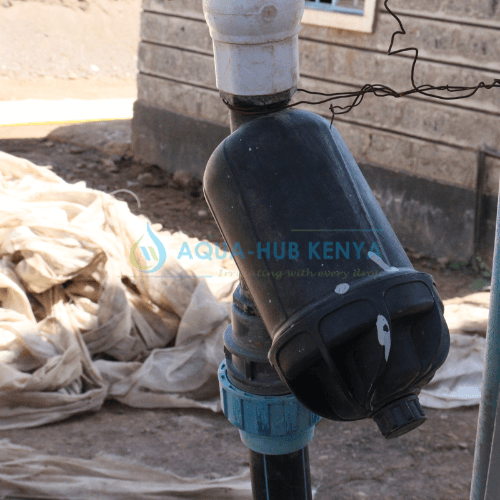
What is the procedure for cleaning irrigation filters?
The procedure for cleaning irrigation filters will vary depending on the type of filter being used. However, some general steps that are often involved in cleaning irrigation filters include:
- Shut off the water supply to the filter and relieve any pressure that may be in the system.
- Disassemble the filter and remove any debris or accumulated sediment that may be present.
- Clean the filter elements with a high-pressure nozzle or a brush, making sure to remove all dirt and debris.
- Inspect all parts of the filter for wear and damage, and replace any parts that are damaged or worn.
- Reassemble the filter, making sure that all parts are properly aligned and tightened.
- Turn the water supply back on and check for leaks or other issues.
- Test the filter’s performance by running water through it, checking also for any restriction in flow.
How does irrigation water filter work?
Irrigation water filters work by removing impurities and contaminants from the water that is used for irrigation. The specific method of filtration will depend on the type of filter being used.
- Sand filters: Sand filters use a bed of sand to trap and remove impurities from the water. The water is pumped through the sand, and as it passes through, particles of dirt and debris are trapped in the sand. The clean water then flows out of the filter, while the dirt and debris are left behind.
- Disc filters: Disc filters use a stack of circular discs with small holes or pores to filter the water. The water is pumped through the stack of discs, and as it passes through, particles of dirt and debris are trapped in the pores of the discs. The clean water then flows out of the filter, while the dirt and debris are left behind.
- Screen filters: Screen filters use a fine mesh screen to filter the water. The water is pumped through the screen, and as it passes through, particles of dirt and debris are trapped in the mesh. The clean water then flows out of the filter, while the dirt and debris are left behind.
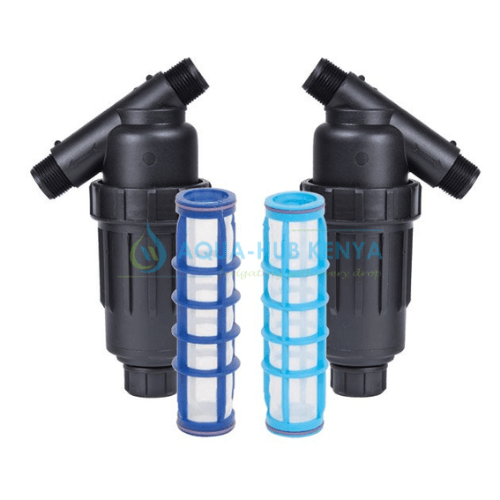
What are the benefits of irrigation water filters?
- Improved crop yields: Irrigation water filters help to ensure that the water used for irrigation is clean and free of debris, sediment, and other unwanted materials that can clog or damage irrigation equipment and reduce crop yields.
- Reduced maintenance costs: Irrigation water filters can also help to prolong the life of irrigation equipment by removing impurities that can cause damage or wear.
- Protection of the environment: Irrigation water filters help to remove harmful microorganisms and chemicals that can be present in the water, which can also be detrimental to the health of plants and the environment.
- Cost savings: Irrigation water filters help to reduce water usage by removing debris and sediment that can block or reduce the flow of water through irrigation systems.
- Better water quality: Irrigation water filters can improve the quality of water used for irrigation, making it free of impurities and debris, which can be harmful to plants and the environment.
- Better water pressure: Filtering the water can also help to improve the pressure of the water, which can be important for maintaining the proper functioning of irrigation systems.
- Better irrigation system performance: Irrigation water filters can help to improve the overall performance of irrigation systems by ensuring that water is clean and free of impurities, which can also help to reduce downtime and maintenance costs.

